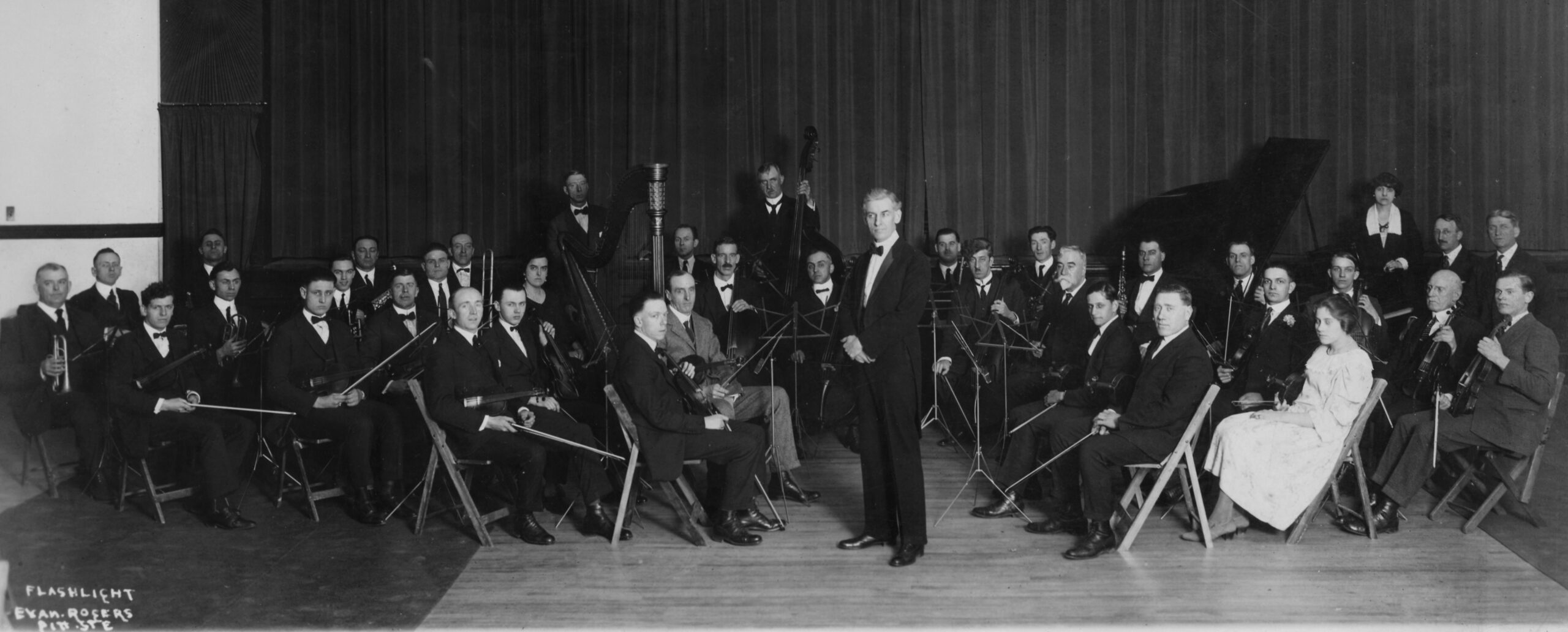
It was 1941 – at the height of World War 2.
Ernest Rennie, a staff musician at CKLW, decided to form a community orchestra to raise funds for Canadian servicemen. It was called the Windsor Concert Orchestra. These early concerts were held at the Tivoli Theatre in Walkerville (now the Walkerville Theatre), and the ballroom at the Prince Edward Hotel, and every Sunday night they were broadcast over CKLW Radio.
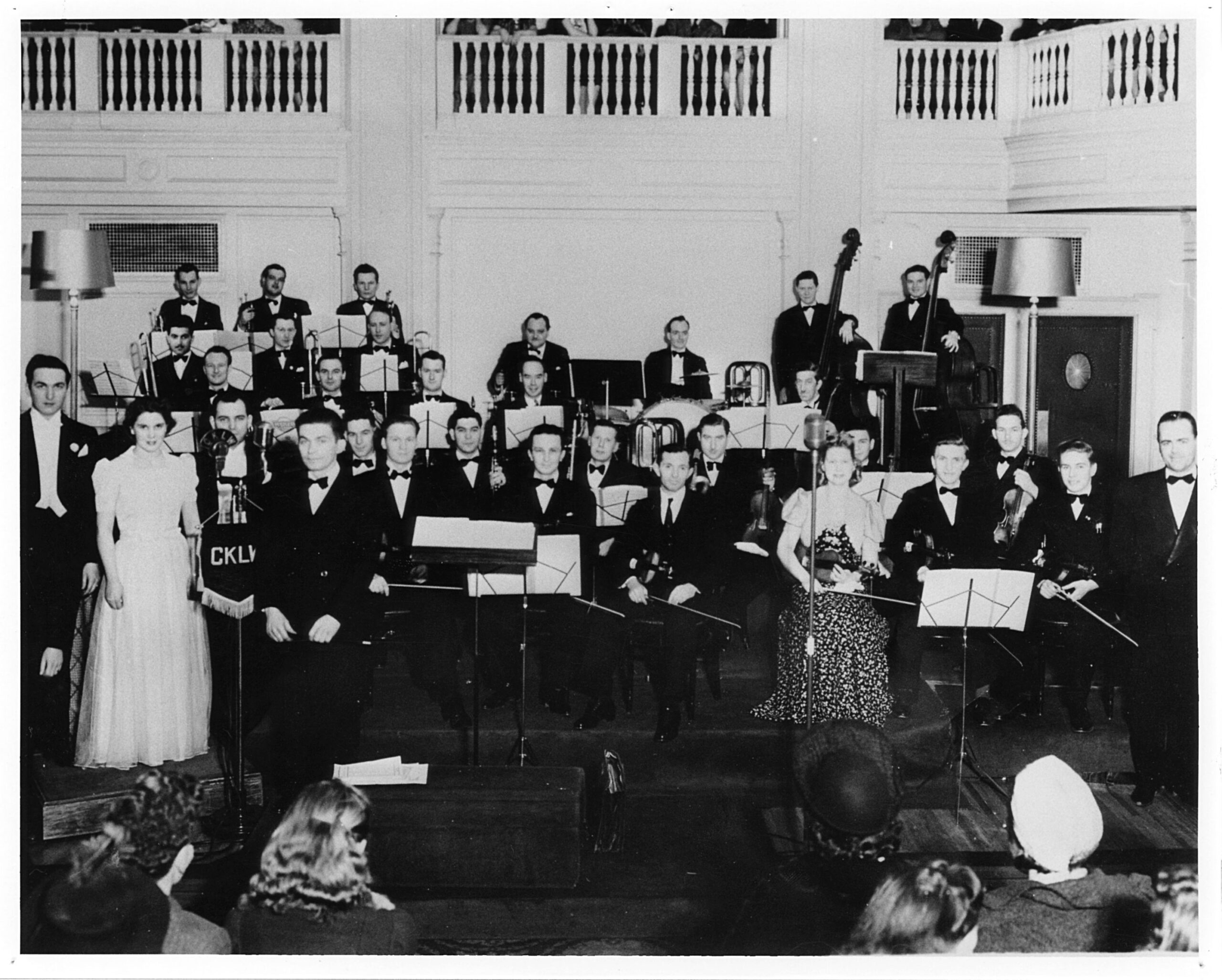
The next year, Matti Holli, a violinist with the Orchestra took charge, when failing health forced Ernest Rennie to step away. Over the next few years, Mr. Holli added more musicians to the orchestra, and in 1947 changed its name to the Windsor Federation of Musicians Symphony Orchestra.
Early on, the City of Windsor recognized the value of the Symphony, and provided a first grant, as a catalyst for its first performance as a professional organization.
The inaugural concert took place at Patterson Collegiate Institute, on November 16, 1947. Thirty-five professional musicians performed Beethoven’s Symphony No. 5, and Tchaikovsky’s Nutcracker Suite.
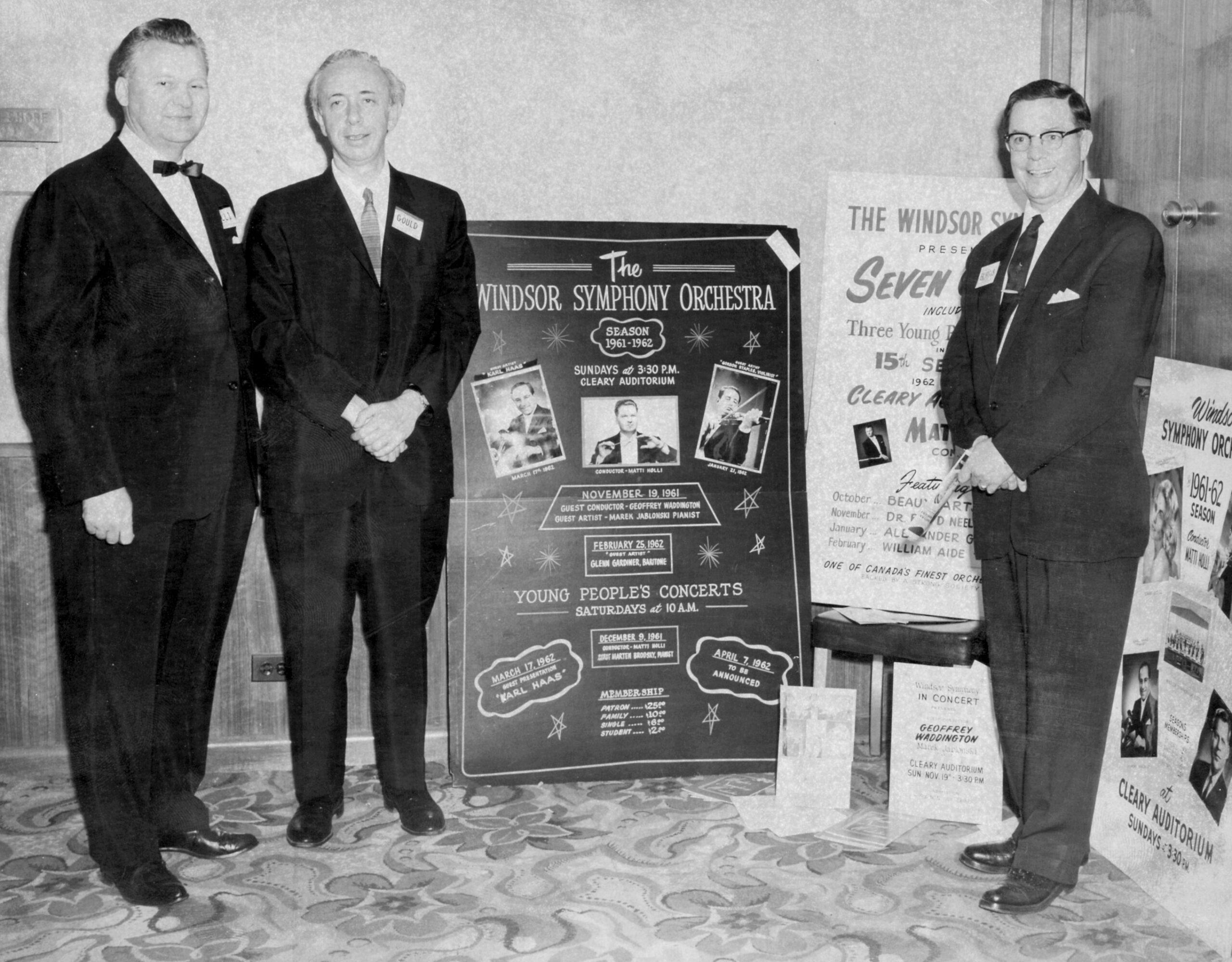
The following year, another name change. The group became the Windsor Symphony Orchestra and Walkerville Collegiate became its new home.
The Windsor Symphony Society was formed in 1949 to manage the orchestra and its finances. Mr. Hugh Stratton was elected its first President. The Windsor Symphony Volunteer Association was formed in 1957 to spearhead fundraising activities and to provide scholarships for young musicians.
From 1949 to 1961, the Orchestra moved around a lot. Back to the Tivoli, then downtown to the Capitol Theatre and then, on October 22, 1961 gave its first performance at the newly built Chrysler Theatre in the Cleary Auditorium.
Maestro Holli was responsible for the orchestra’s steady growth and the development of symphonic music in Windsor and Essex County. He founded the Border Cities Youth Orchestra and conducted hundreds of WSO performances. His sudden death in 1977, just prior to a concert at the start of the WSO’s 30th season, brought a tragic close to a most distinguished career.
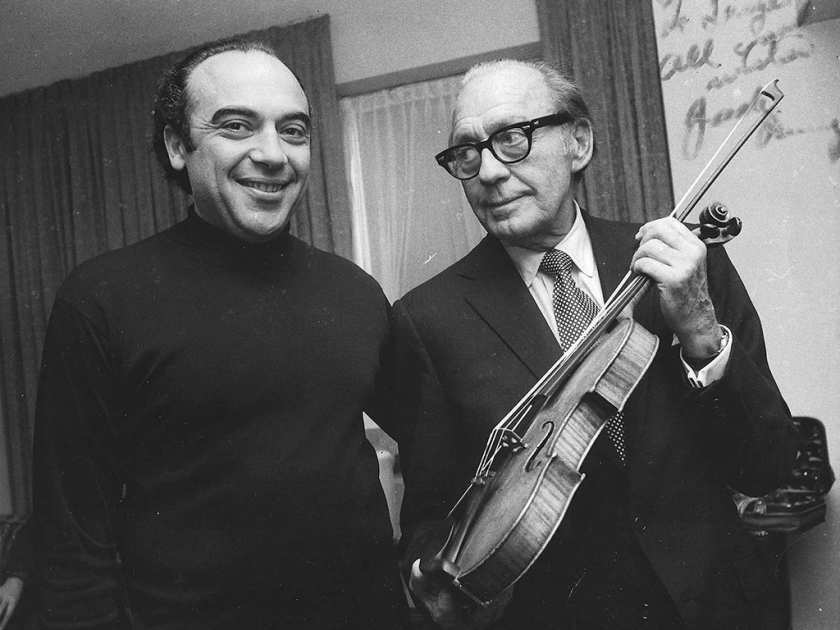
In 1979, Hungarian born Laszlo Gati was appointed Music Director. Gati led the WSO in its first commercial recording in 1983: the Rachmaninoff Piano Concerto No. 3, with pianist Michael Rudy.
Maestro Gati was well known for his fiery performances, but no one could have predicted just how fiery… until one night in July 1980. The WSO has always been grounded in community, so when the opportunity came for the Orchestra to stage a live performance as part of former International Freedom Festival, Maestro Gati jumped at the chance. What better place to perform than Windsor’s waterfront – with a view of Windsor’s Freedom Festival partner – Detroit. The music – Tchaikovsky’s 1812 Overture, complete with cannon fire.
The special explosive effects were set off from a small cordoned off area behind the band shell. Cardboard missiles filled with explosives were fired. The cardboard disintegrated upon detonation. But a metal cannister placed on the ground as part of the detonating device exploded, spraying the crowd with fine bits of metal. It was chaos. Paramedics had trouble getting to the injured because of the crowds, and because Riverside Drive was closed for the Freedom Festival. Eventually the wounded, about 40 in all, were taken to hospital by bus. It was a night Windsor won’t forget.
Five years later, in 1985, health issues forced the resignation of Maestro Gati. For the next season and a half, Timothy Vernon served as Acting Music Director and Conductor. Between 1986 and 1990, Dwight Bennett led the WSO, which under his direction became a fully professional orchestra.
The Windsor Symphony Chorus was founded in 1988. In 1992 the Board of Directors formally incorporated the Windsor Symphony Orchestra Chorus as an integral part of the WSO organization. It has regularly performed on WSO series concerts ever since.
Dr. Susan Haig became the fourth Music Director in 1991. During her decade long tenure, the WSO rose to national prominence as one of Canada’s most innovative regional orchestras.
The WSO was the first orchestra to perform at the CBC’s Glenn Gould Studio in Toronto in 1993.
The WSO and the University of Windsor produced its first Windsor Canadian Music Festival during the 1995/1996 season. In 1996 the Society of Composers, Authors and Music Publishers of Canada (SOCAN) formed a special Composer-in-the-Community Program with Jeffrey Ryan. The WSO was also the featured orchestra at the 1997 International Cabot 500 Festival in Newfoundland. In 1999 Maestra Haig recorded the WSO’s first CD with works by Mozart and Haydn, featuring Windsor soprano Peggy Dwyer.
While artistically the WSO was breaking new ground, the 90’s marked a period of extraordinary financial challenges.
In August 1998 Mina Grossman Ianni became the WSO’s General Manager, and with the cooperation of the Board, Staff, volunteers and musicians, rescued the WSO from near bankruptcy. She recruited a new management team which began a major turnaround in the orchestra’s fortunes. Subscription sales doubled. New concert series were created, and in August of 2001, John Morris Russell was appointed Music Director.
During Maestro Russell’s tenure, the Windsor Symphony Orchestra experienced extraordinary artistic and structural growth.
In 2001, the WSO was awarded the prestigious Ontario Lieutenant Governors’s Award for the Arts which it won again in 2004. Nationally broadcast recordings on CBC Radio 2, and televised broadcasts on CBC Television, brought the WSO unprecedented national and international exposure.
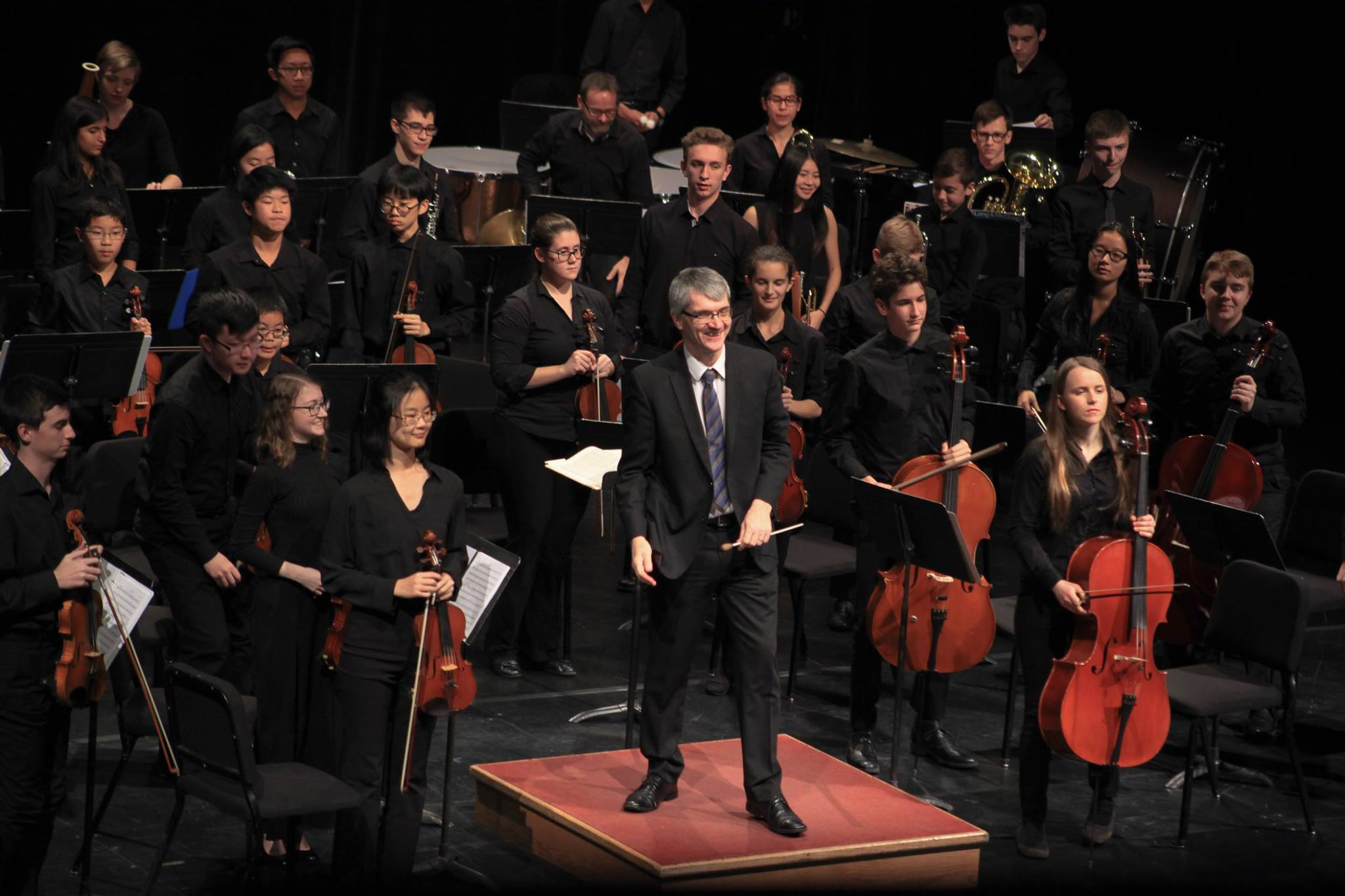
In 2003 Brent Lee became the WSO’s first multi-year Composer-in-Residence. A three- year grant from the Canada Council for the Arts helped to forge major additions to Canadian music literature by Dr. Lee, which have been performed by the Toronto Symphony Orchestra. In 2004 the WSO became a part of the Music Therapy program at the University of Windsor, and Windsor Regional Hospitals, and the same year, the WSO Youth Orchestra and the all-strings Junior Youth Orchestra were created.
In 2005, the WSO appointed its first Assistant Conductor, WSO cellist Peter Wiebe.
His responsibilities included leading the WSYO, community outreach and subscription concerts of the WSO. That year, the 40 member Windsor Symphony Youth Orchestra performed its first full concert in the Walkerville Collegiate Institute theatre. The following season Maestro Wiebe launched the Peanut Butter ‘n Jam series – the WSO’s first series of concerts for toddlers and parents.
In the spring of 2006, Maestro Russell conducted the WSO’s second commercial CD featuring Prokofiev’s Peter and the Wolf, with narrative by Windsor-born actor Colm Feore, and Brent Lee’s Last Minute Lulu. The CD was released in November 2006 to rave reviews.
The next year, on March 17, 2007, more than 256 musicians and singers performed Carl Orff’s Carmina Burana, the largest musical event ever mounted by the WSO. Maestro Russell became the WSO’s first Conductor Leaureate at the completion of his eleventh season as Music Director.
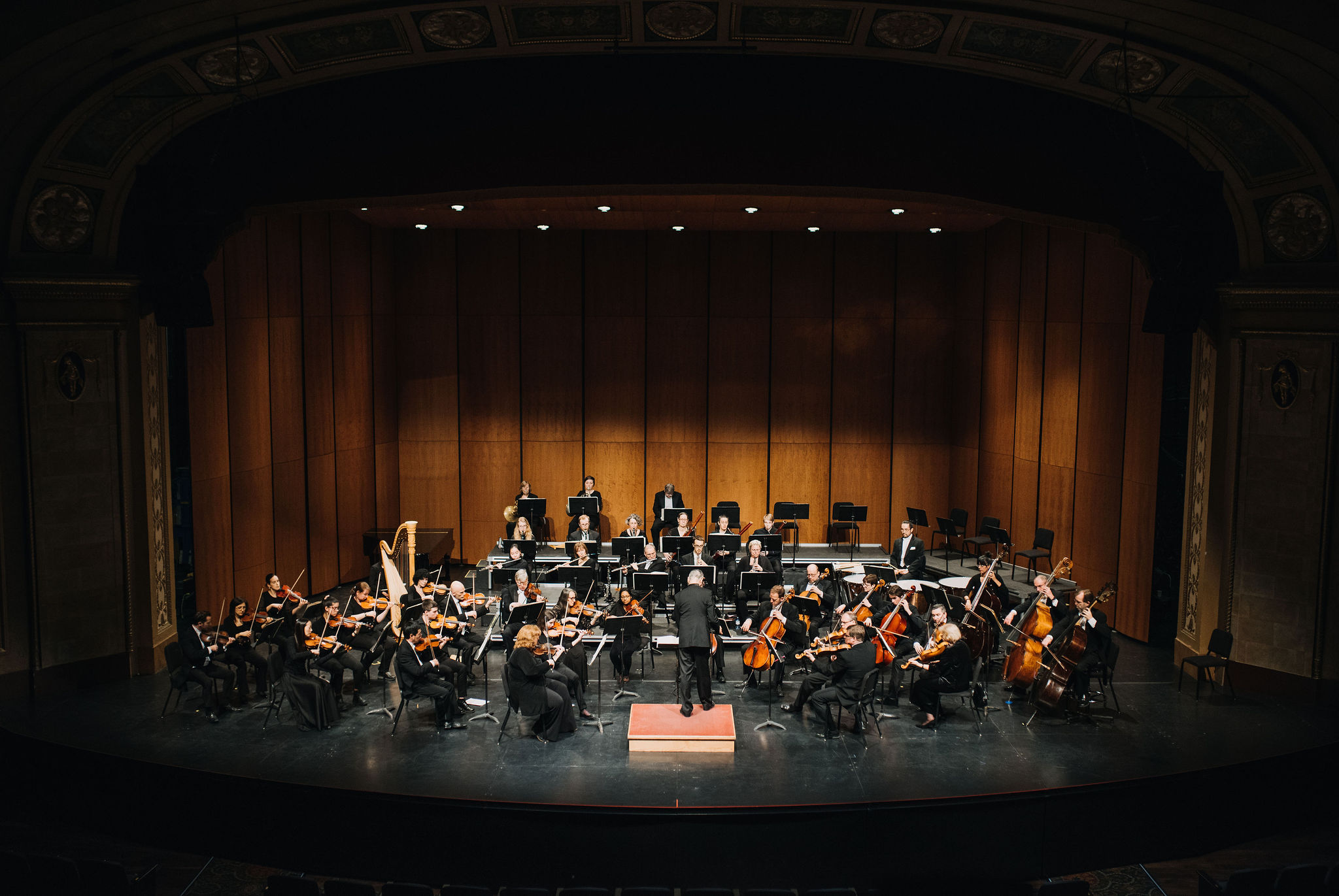
In September 2012 the WSO took over operation of Windsor’s historic Capitol Theatre. In addition to it becoming the new performance home for the Orchestra, the WSO manages the Capitol as a community theatre. That same year the WSO premiered a commissioned work by First Nations Composer, Barbara Croall. The work was called Wezoowaad Anang (Ojibwa for Shooting Star).
2012 also saw the Orchestra undertake an international search for a new Music Director. An original list of 153 candidates from 28 countries was reduced to eight finalists, each of who led a weekend of concerts and public appearances.
In February 2013, the WSO announced the appointment of Maestro Robert Franz as its sixth Music Director. Maestro Franz began in September 2013, leading a season that garnered wide praise from the media and public.
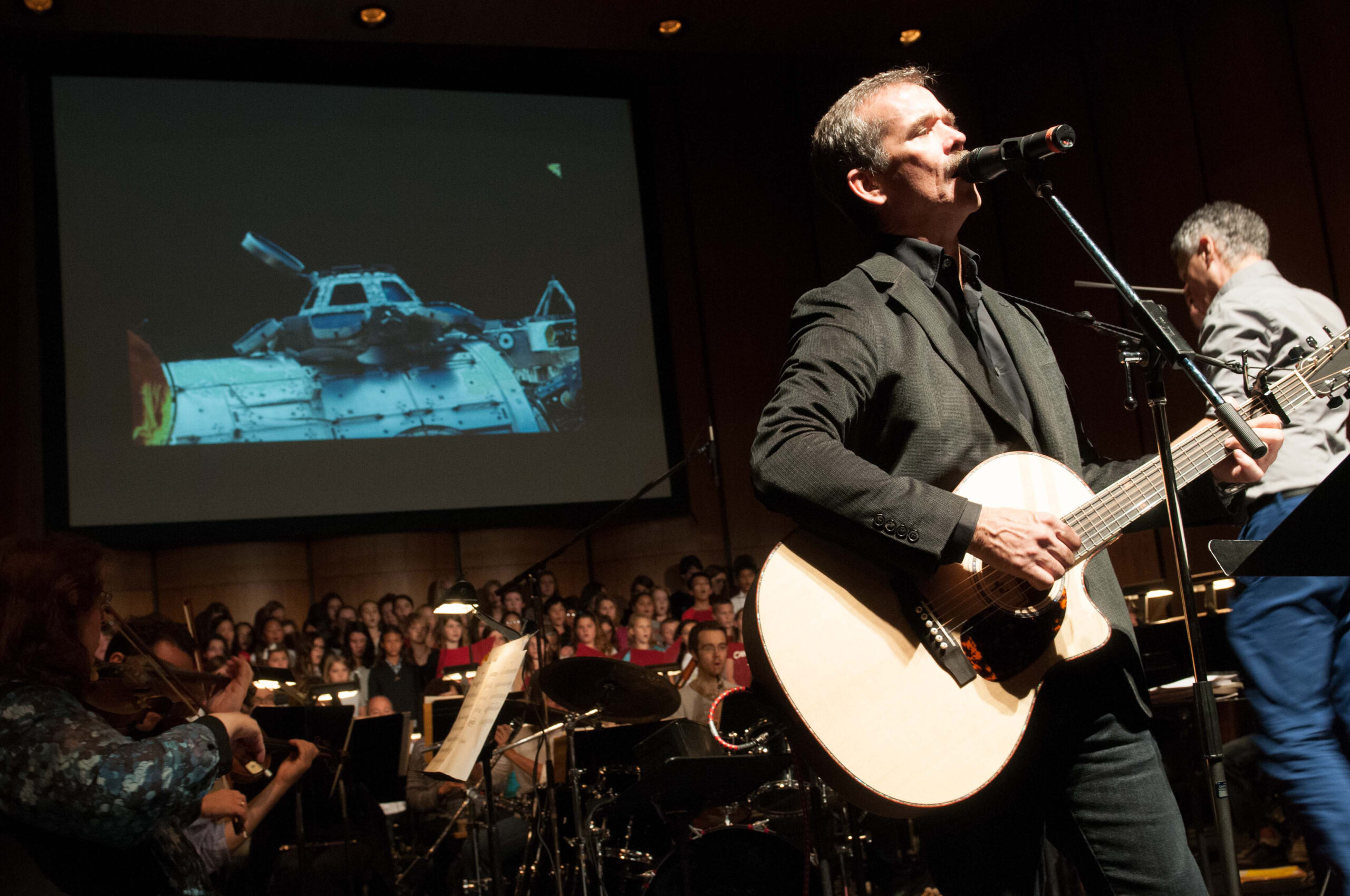
In 2014, Windsor businesswoman and former City Councillor Sheila Wisdom took over the helm as Executive Director.
In October of 2014, Colonel Chris Hadfield, fresh from his six-month stint as Commander of the International Space Station, made his concert debut with the WSO at the Capitol Theatre. Col. Hadfield had captured the public’s interest with his musical performances from space. Here in Windsor, he played four sold out concerts! His first ever ‘on the ground’.
In the years since the arrival of Maestro Franz, the orchestra has continued to grow artistically. In 2018 the Symphony performed the world premiere of “Pelee” – a WSO commissioned work by composer Jeff Smallman to commemorate the 100th Anniversary of Point Pelee National Park.
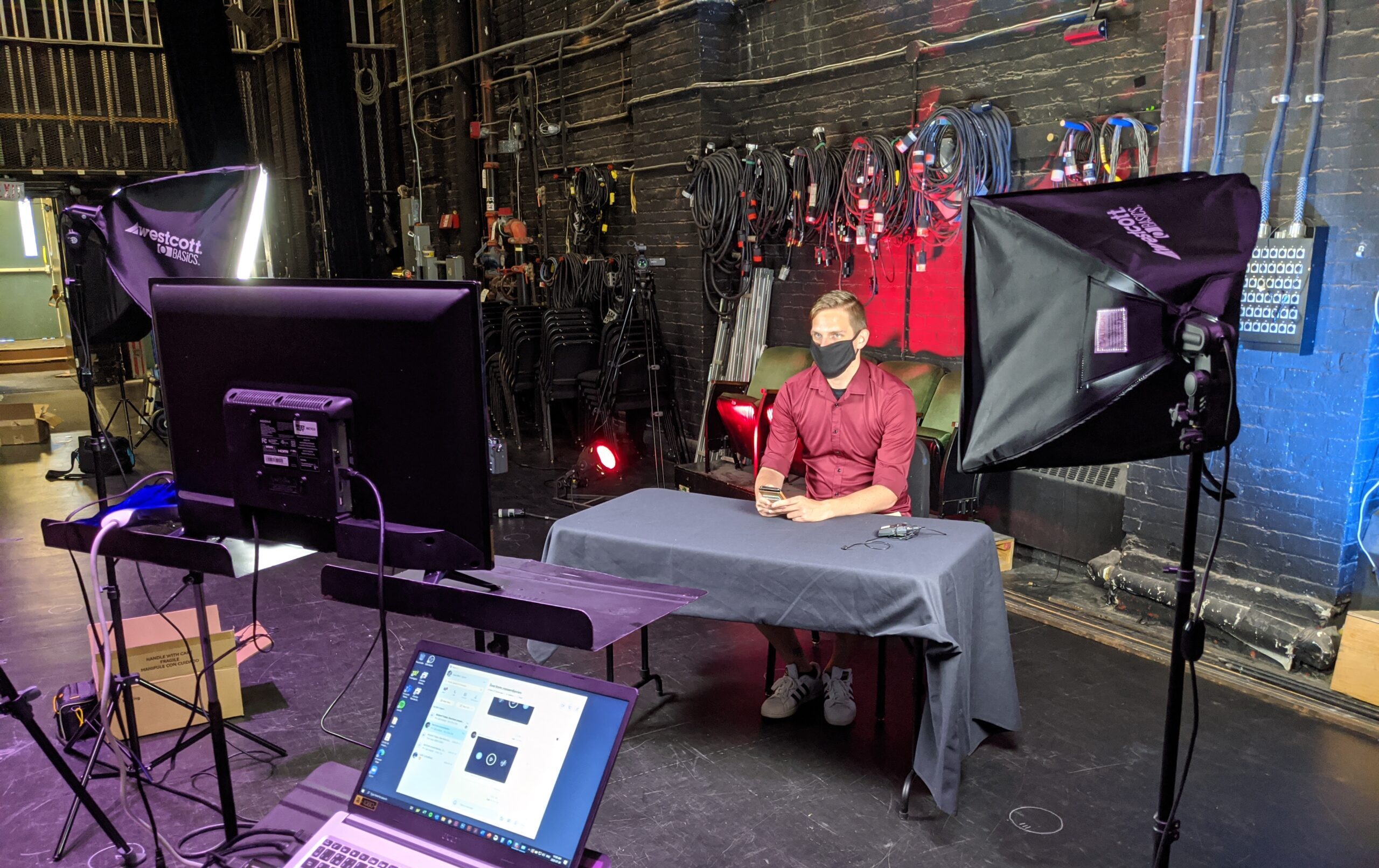
That same year, Assistant Conductor Peter Wiebe stepped down, and Daniel Wiley stepped into the job. Maestro Wiley, in addition to his conducting duties, launched the Windsor Community Orchestra, and has worked tirelessly to create inspiring and magical education programs for elementary and high schools. At the same time, he took over the Windsor Symphony Youth Orchestra.
The past year – the year of the pandemic – has been challenging for all performing arts.
But in fall of 2020, Maestro Franz and the WSO took a calculated risk, and performed and recorded a digital concert season, reaching new audiences near and far. Elementary and secondary school education programs moved seamlessly from live and in-person, to digital, and are currently reaching over 68,000 students in 16 school boards across North America. This was made possible by the foresight of staff, who equipped the Capitol Theatre with professional audio-visual equipment more than a year earlier.
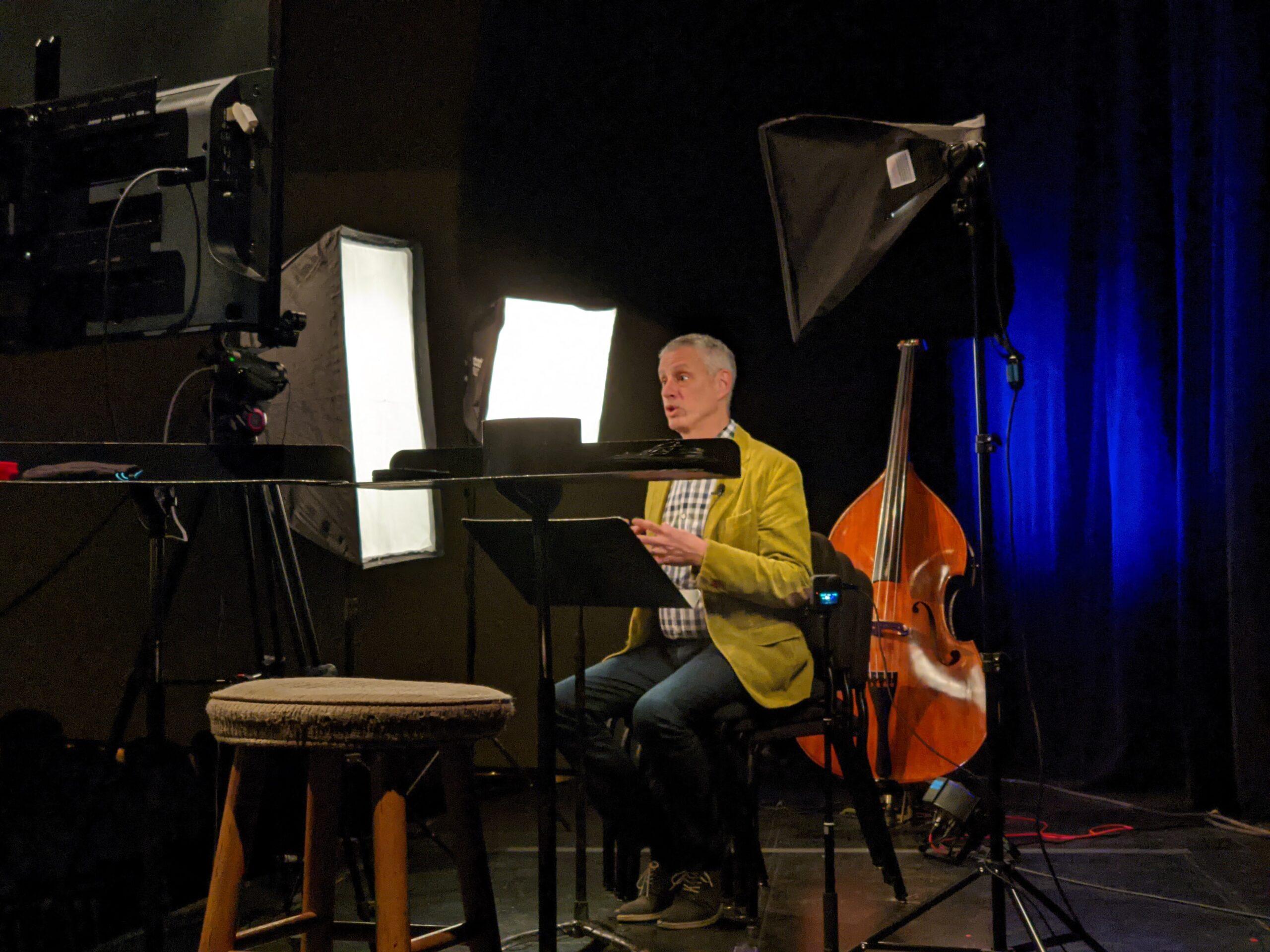
The Windsor Symphony Orchestra now reaches more listeners than in any time in its history. The WSO’s commitment to excellence and consistent emphasis on education and community outreach, have galvanized a new generation of music lovers in Windsor and Essex County, and will continue to bring inspired music making to our region in the future.